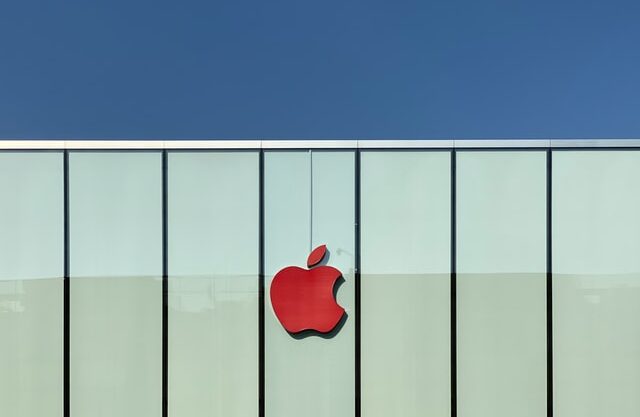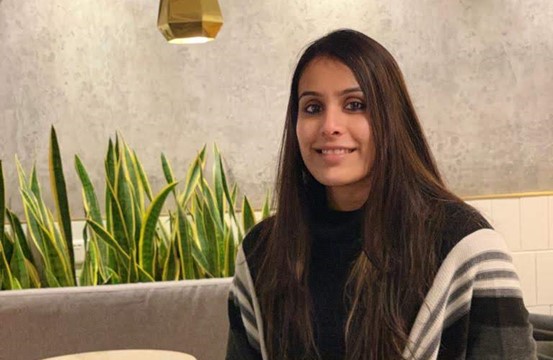This inspiring story is of a rising startup called LIFE Intelligence started by Jasmine Chen in the education technology space. Here is the story of LIFE Intelligence in Jasmine’s own words.
LIFE Intelligence is a scientific pocket problem-solver for work, love, and all the ups and downs of LIFE. A “DIY” therapist, leadership coach, and marriage counselor in one. Developed by a hedge fund investor, LIFE puts the rigor of stock research into your daily decisions, goals, and conflicts. For immediate needs, introspective snippets help you navigate situations in minutes. For long-term learning, our 9-step journey guides users to mental, work, and relationship wellness.
Introduce us to your idea of LIFE Intelligence
The LIFE Intelligence app is a two-part tool for complete self-and-other management.
First, we provide an immediate problem-solving solution. Anxious before a meeting? Click through our grounding exercise. Overwhelmed with tasks? Use our project management frameworks to make goals manageable. Afraid of confrontation? Plan hard conversations beforehand with our 7-step walk-through. Whether rejected, resentful, or enraged, LIFE’s immediate coping and communication exercises help you handle every situation with ease. Users say this has “Helped me navigate difficult situations with scientifically-proven methods.”
Second, for those with a proactive mindset to develop themselves, we offer a comprehensive drip course. Mental health, work productivity, and relationships are inextricably linked. While most apps only address one silo, LIFE covers it all. Each morning, we send you a 5-minute lesson. Grow in 9 core areas, curated with the thoughtful flow:
1 Build mental agility and emotional management skills
2 Develop self-awareness and emotional intelligence
3 Discover values, set goals, track habits
4 Minimize regret and manage time
5 Make difficult decisions, avoid mental biases, determine the direction
6 Manage stress, social support, and friendships
7 Understand attraction, attachment, dating, and relationships
8 Practice communication, persuasion, and conflict resolution
9 Lead, influence, and motivate a team
What’s your strategy story? What led you to start LIFE Intelligence?
After Princeton, Harvard Business School, and years of financial investing, I was disappointed to find myself, and many smart, high achieving peers, still struggle with mental health, career fulfillment, and relationship satisfaction. We wanted to change but were frustrated with most wellness tools that seemed “fluffy” for our type-A personalities. I wanted something well-researched, efficient, and practical.
At the time, my job was to scan the world of information to find nuggets of wisdom that could give us an edge on our investments. But I realized that I didn’t have an ounce of that analysis and reflection for my personal life: arguably, my one best investment.
Yet, from my research abilities, I knew there were decades of psychology studies out there that never get to the general public. Most people never have time to read thousands of dense academic articles. I thought: maybe I have a unique ability to find, dissect, and distill those studies in the same way I did for stocks.
So, I quit my high-paying job to do just that. I decided that if the wellness product of my dreams didn’t exist, I would have to build it. I would research and write the comprehensive program that I wish I’d been given over years of professional training. Today, LIFE Intelligence encompasses hundreds of topics about your personal and professional development. All cited in the app for those most scrutinizing. Putting the rigor of stock research into your daily decisions, goals, and conflicts.
What marketing, operation strategies are you adopting at LIFE Intelligence?
Over the last 1.5 years, I’ve self-funded LIFE Intelligence out of my own savings. My parents immigrated from Taiwan, and I grew up in Iowa, so I think those two parts of my upbringing make me a “roll up your sleeves” kind of entrepreneur.
I’ve had to be very cost-conscious changing my lifestyle from a high-flying one in finance to now one with slimmed-down to only the essentials. I feel that growing organically, especially at the early stages of a startup, is so important, because I want to make sure the earliest adopters are true evangelists for our product.
They don’t find out about us because we’re flashy, but they find out about us because they really have a need we can solve. We write a lot of content, on topics that range from self-development and mental health to HR tools and workplace wellness and productivity to communication, relationships, and marriage.
We try to put a lot of research into each of our articles, making them more robust than your average blog post. These “how-to” articles give people free insights and develop trust in our app.
Any strategy mistakes you have made and what did you learn?
I had always had a passion for education, so my first target audience was actually college students. I thought: why don’t we have a standard curriculum for this social-emotional learning, as part of freshman orientation or required coursework? School shootings and suicides were skyrocketing during that time and it was heartbreaking. So, I did most of my customer validation on college campuses and with Deans of Student LIFE and Heads of Counseling and Psychological Services.
I was thrilled when we tested the MVP on freshmen and graduate students and they said it helped with their coursework, marriages, anger, anxiety, and more. But, a mistake here was that sadly, education is really slow to move. I was quickly disillusioned by how risk-averse and traditional schools were, despite knowing they had a huge mental health problem on their hands. After getting inbounds from companies and individuals, we decided to pivot into serving them first.
Finally what advice do you have for your fellow entrepreneur readers?
Take care of your own mental health! Driven professionals also tend to have a psychological profile that makes them more prone to social-emotional differences that can underlie depression.
This is only amplified when in the tough world of startups. I feel lucky that I get to use my own product. Even having researched and written the program, I continue to use LIFE every day. If I’m frustrated with a teammate, feeling helpless about a lost sale, or indecisive about the next steps, I open the app and use its coping, communication, and problem-solving exercises to gain new insights each time.
Disclaimer: The information in the above story is provided by the startup and The Strategy Story takes no responsibility for the authenticity of the product and services offered by the startup. Reader’s discretion is advised.
Check out stories of other aspiring Entrepreneurs
Also check out our most loved stories below

Johnnie Walker – The legend that keeps walking!
Johnnie Walker is a 200 years old brand but it is still going strong with its marketing strategies and bold attitude to challenge the conventional norms.

Starbucks prices products on value not cost. Why?
In value-based pricing, products are price based on the perceived value instead of cost. Starbucks has mastered the art of value-based pricing. How?

Nike doesn’t sell shoes. It sells an idea!!
Nike has built one of the most powerful brands in the world through its benefit based marketing strategy. What is this strategy and how Nike has used it?

Domino’s is not a pizza delivery company. What is it then?
How one step towards digital transformation completely changed the brand perception of Domino’s from a pizza delivery company to a technology company?

BlackRock, the story of the world’s largest shadow bank
BlackRock has $7.9 trillion worth of Asset Under Management which is equal to 91 sovereign wealth funds managed. What made it unknown but a massive banker?

Why does Tesla’s Zero Dollar Budget Marketing Strategy work?
Touted as the most valuable car company in the world, Tesla firmly sticks to its zero dollar marketing. Then what is Tesla’s marketing strategy?

The Nokia Saga – Rise, Fall and Return
Nokia is a perfect case study of a business that once invincible but failed to maintain leadership as it did not innovate as fast as its competitors did!






